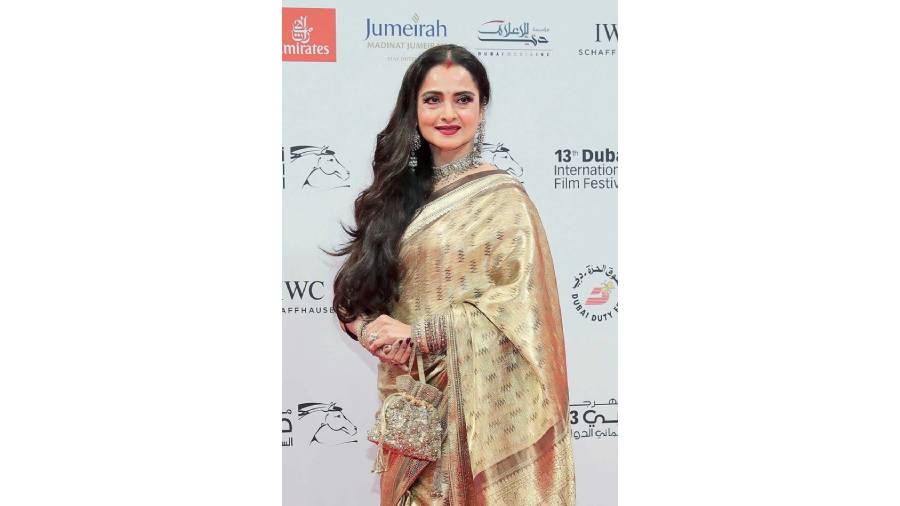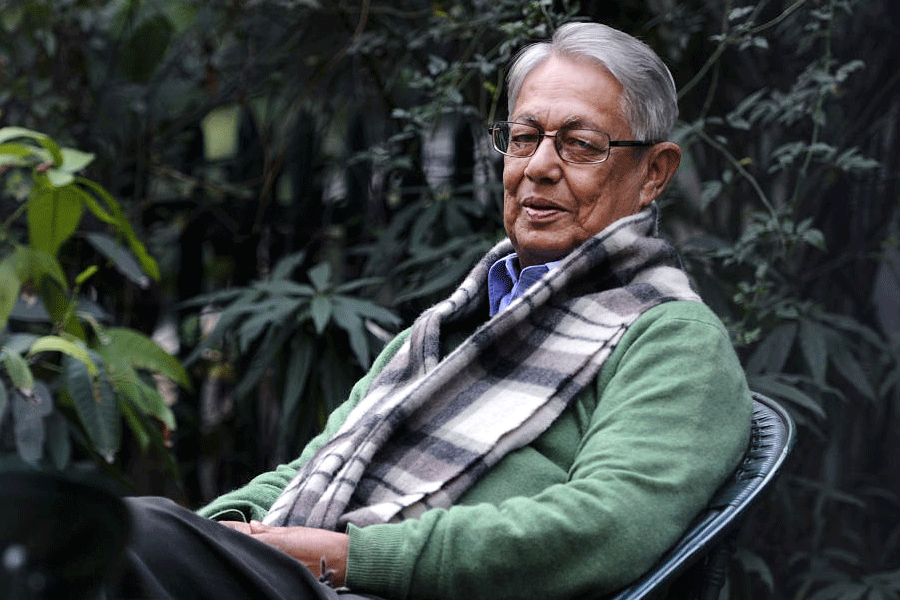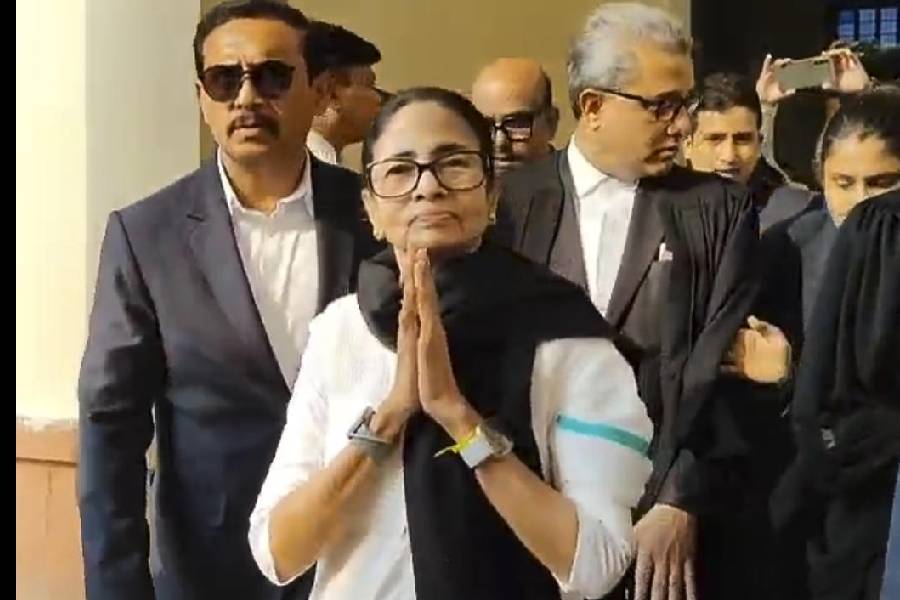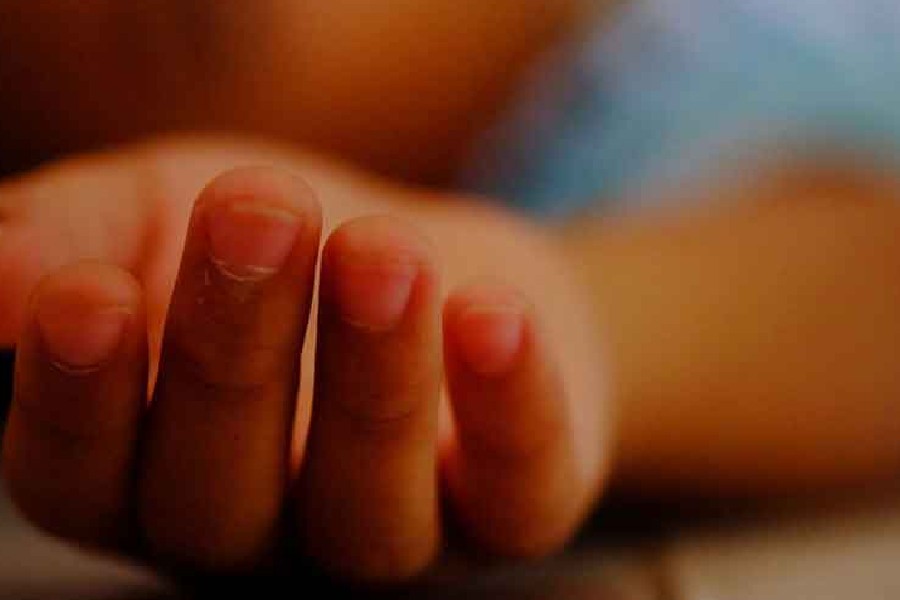Jawed Habib group of companies and associates has over 850 salons and several hair academies across cities. The brand has cut a niche for itself in the haircare and hair beauty industry in India. The man helming it all, celebrity hairstylist and hair expert Jawed Habib, was in town recently for the launch of Jawed Habib’s pre-conditioning pack in collaboration with Ccigmaa Lifestyle Pvt. Ltd’s luxury hair brand KT Professional. The three-product pre-conditioning combo pack — priced at Rs 1,199, comprising KT Pre Conditioning Mustard Oil Mist, KT Mustard Shampoo, and KT Pre Conditioner Silky Serum — is a one-pack haircare solution. Jawed Habib conducted a master class on innovations and techniques in keratin, cysteine, and Botox hair services, which preceded the launch. A candid chat with the master hairstylist.
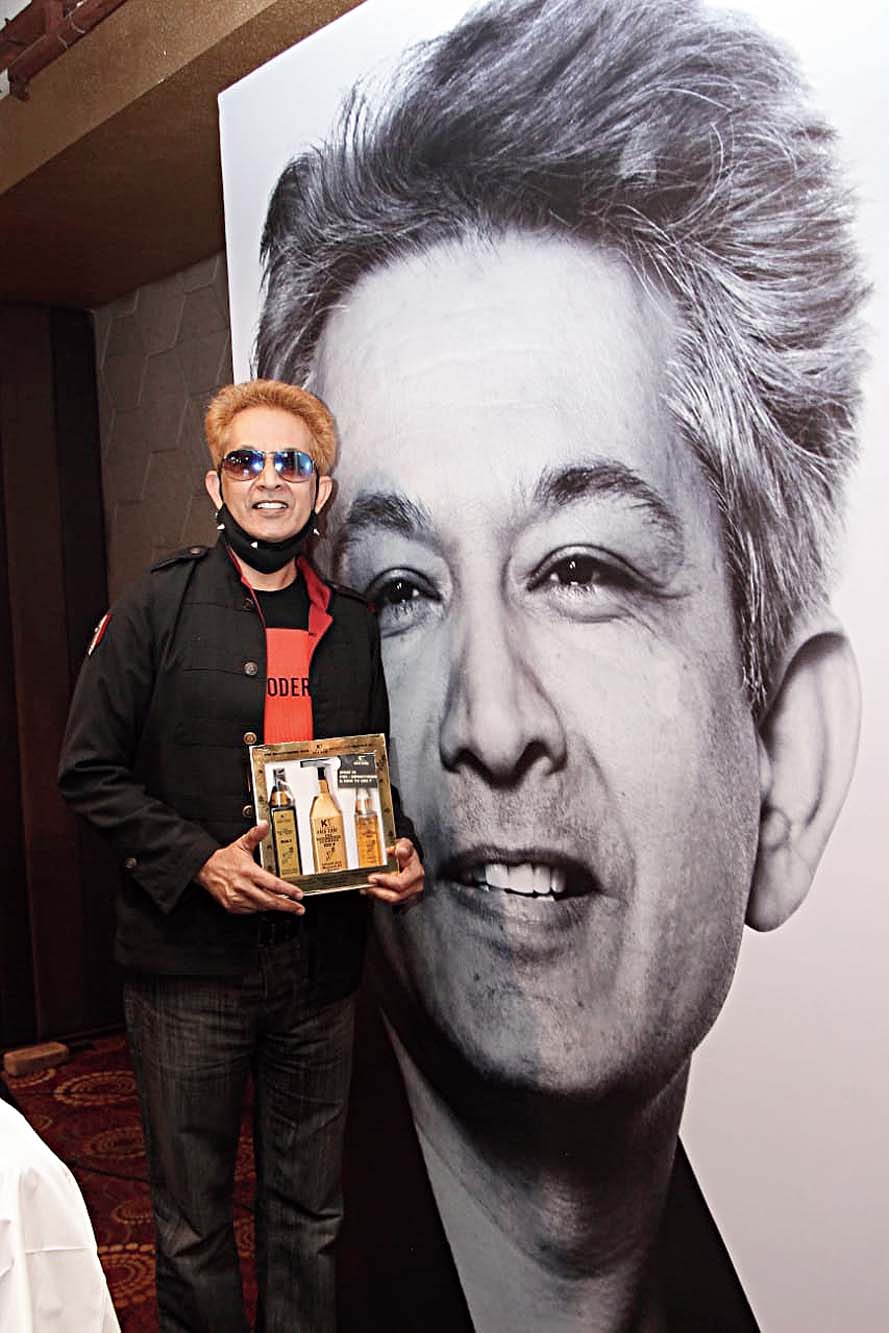
Jawed Habib at launch of his pre-conditioning pack, in Calcutta Sourced by the correspondent
How do you think the pandemic has altered the beauty and hair trends and the salon industry too?
The Covid-19 pandemic has changed the world. The salon industry has changed too. I think long hair is the fashion now because when people were indoors during lockdown last year and even this year, they could not get haircuts. So, we are now quite used to the long-hair look and are even enjoying the length. But all the same, keeping long hair healthy is difficult. India is a country where 99 per cent of people have long hair. So to maintain the length and health of the hair, correction of hair is needed. And for that, chemicals will play an important role. You need more products and services like keratin treatment, cysteine, Botox treatment, hair straightening, hair colour…. Post-Covid fashion is not just a term today but also a need.
Could you elaborate on what post-Covid fashion in hair beauty and haircare will entail?
During Covid times, everyone inside the house can do facial, waxing, threading, but not haircut. So, now the beauty parlour will become more like a salon parlour. And beauty will be DIY, and when I say DIY, it means that facial is going to be product-based and not skill-based. Only hair cutting will still be skill-based, which also needs a lot of chemical-based services and products. Longer hair is the trend now. But one wrong chemical can spoil your hair. So to avoid that, the knowledge of which chemical works on your hair is essential. You must have heard people saying that straightening damages your hair. But it might have been the fault of the hairdresser who did that, not necessarily the chemicals. That is where the correct process comes. So, now, more than before, I think education will play a significant role in the growth of this industry.
How do you look at the potential of the haircare and hair beauty industry in India?
I think hair fashion started in India, and not in London, not in Paris. If you visit Ajanta Caves, Ellora Caves, look at the inscriptions, artwork, the hair! It means the tradition for hairstyling and haircare was with us all along. Asians have been at the forefront of the hair industry.
There are nearly 3 crore salons in India. And every salon employs three people. So, it means out of a population of 130 crore people, 9 to 10 crore people belong to our industry. So, the beauty and salon industry plays a crucial role in our economy, but we lack the organisation and education.
You have taken hairstyling to new heights in India over the years. Do you think the customers today are more aware of beauty products? How has beauty and haircare evolved in India over the years, and what changes can you see in the future?
The hair industry is not the same as it was 30 years back. It is not a herbal industry any more. Today, because of social media, everyone is so aware of what they want. The hairdresser has to be genuine, educated and specialised with the technical know-how now. I think this is a big difference.
The new thing that will happen now is that the government is introducing a licencing system in the haircare industry. Now every hairdresser and salon has to be licensed. So this will help make the hair industry more organised. At least the government will have data on the number of salons and hairdressers in the industry. But, once the government announces licencing for the salon industry and once the licencing starts, this industry will be huge.
Beauty and wellness to you would be?
Beauty to me means humein achcha dikhna chahiye. Humaari din ki shuruaat sheeshe mein khud ko dekhkar hoti hai, aur subah agar achcha dikhenge, the whole day will be nice. You will feel positive. Raat ko sone se pehle dubaara sheeshe mein jaate hai because we all want to dream well. So, beauty and wellness is a dreaming, dreaming world.
Any all-time haircare tips and pointers for both women and men?
Shampoo daily, shampoo daily, shampoo daily! Pre-condition daily, pre-condition daily!
Any myth about beauty and wellness that you would like to bust?
Well, skincare, haircare, beauty, and wellness products have chemicals; shampoo has chemicals, soap has chemicals, even water is a chemical, so the word is chemical! Do not be scared of it. Learn how to live with it.
Who is your personal favourite: Jawed Habib the academician, or Jawed Habib the hairstylist?
Jawed Habib, the don... (laughs), who tells people how to tend to and look after their hair. This is the knowledge that I wish to pass down to the next generation. No one should go bald… that is my mission.
You have had a rich family legacy in hairstyling behind you that speaks for itself.
My dada (Nazir Ahmed) used to work at Rashtrapati Bhavan. He was a government servant who worked from 1937 to 1972, for almost 50 to 60 years. So his work was only cleaning the sideburns or cleaning the neck. Around the time when my dad (Habib Ahmed) joined, this profession was coming up. So he started working as a businessman. But when I say businessman, it means running only one or two salons in those times.
When I grew up, I also worked in McDonald’s. At that point, I thought to myself, why not create a ‘Hair McDonald’s’. My father had a different role, and so did my grandfather in his lifetime. My vision is different. And my son will have a different role too, of course, because we are all from different generations.
Has that vision of yours changed with time?
I had only one vision when I started 30 years back. It has remained the same throughout, to create a Hair McDonald’s.
Looking ahead, what is your plan from here on?
You see, my Hair McDonald’s is possible only through education, which will bring a lot of streamlined processes. Today if we are running 900 salons, it is run through a process and is not just Jawed Habib cutting hair. This profession is so big! So, if I have 900 salons with say three people in each salon, even that is a small number out of the total population in India. The number should go up to 9 lakh salons, to be the biggest job-creator in this field.
Looking back, how would you sum up your career?
It all comes down to hard work, with romance! I know some people might say, ‘oh baal kaat te ho!’ But to me, it is my education, my profession, my future, my life, everything!

